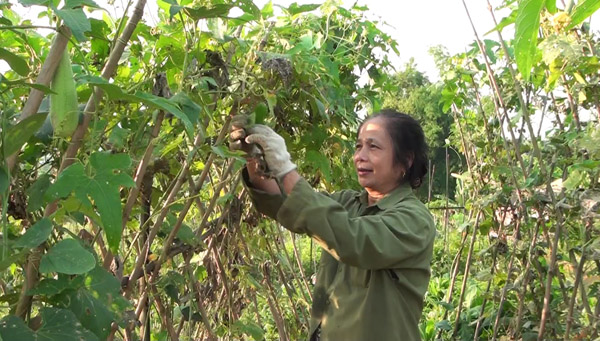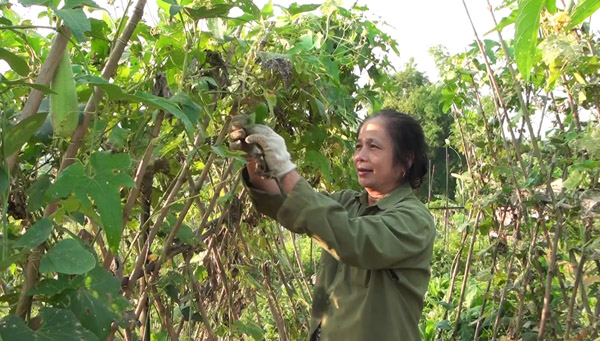


As one of successful
new-style farming models, Hop Hoa commune has planted safe and quality
vegetables with high economic value, helping locals stabilise their life and
protect the environment. Many growers are likely getting rich thanks to productive
organic vegetable gardens.
This is the result of the ADDA
project jointly implemented by the Agricultural Development Denmark Asia
(ADDA), Northern Agriculture and
Together with Luong Son district, the project was initially carried out in Trai Hoa hamlet, Hop Hoa commune, in 2008. It was then expanded to Dam Da 1 and Dam Da 2 hamlets.
Organic vegetables grown here are considered "super clean”, as neither chemical fertilisers nor pesticides are used. All kinds of vegetables like gourds, pumpkins, tomatoes, carrots, basella alba and amaranth are watered with well water and fed with potting compost. Worms are killed by hand and pests are exterminated by bio-insecticides made from chilli, ginger, and garlic. In addition, farmers plant sunflowers and daisies to attract bees and ladybugs to kill pests.

Organic vegetables are cared manually without chemicals and pesticides by farmers in Trai Hoa hamlet, Hop Hoa commune (Luong Son).
However, to make organic vegetables grow healthily and give high yield, farmers must follow strict requirements on seeds, manure and water resources. All seeds have to be provided by the province’s seed research centre. The only manure used is muck composted from 3-6 months. Farmers have to use water taken from springs or wells whose quality is verified to be good for vegetables. They also have to take part in a training course on cultivation techniques as a certificate on course participation allows them to join the project.
In addition, farmers have to commit to implementing the project for a long term.
These strict requirements
have brought higher and more stable income for farmers compared with such
traditional plants as maize and cassava. The project’s participants have also
been helped to connect with many businesses to bring organic vegetables to
Mrs Bui Thi Thoa, Trai Hoa commune, a collective member, said: "I have participated in the organic vegetable collective since the project started. I only use organic fertilizers to feed the plants and spray herbal pesticides so that my vegetable fields rarely suffer diseases and my health is not affected when caring vegetables. In the past, when I planted maize and cassava, my income was low, at 600,000 VND – 1 million VND per month. Since shifting to organic vegetable farming, I can earn 6 million VND a month. After all costs are deducted, I pocket 4 million VND”.
Mr Dinh Cong Hoan, Vice Chairman of the Hop Hoa commune People’s Committee, said: "Organic vegetable farming in the commune is an effective model which meets consumers’ demand for safe farm products, thus contributing to protecting the environment and public health and affirming farmers’ correct method to develop agriculture sustainably”.
Hoang
Anh